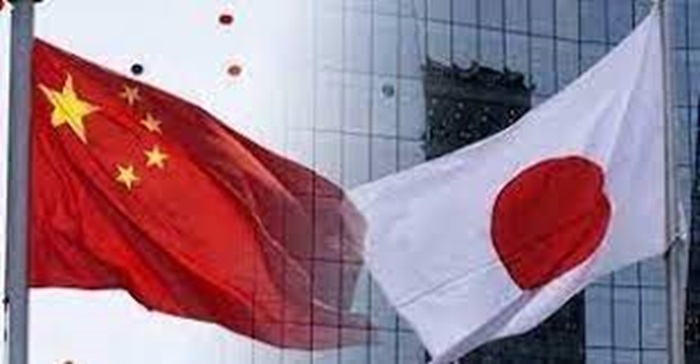
Japanese people’s sentiments toward China worsened in 2023 and they are expected to deteriorate further as the tension between the two countries is expected to rise. Beijing’s latest decision to patrol the Senkaku Islands around the clock is going to add to the already strained relations. Both countries witnessed friction on a few issues in 2023. Now, the tension is set to escalate further as Japan has started taking measures to counter Chinese aggression and coercion.
Under President Xi Jinping’s rule, there have been increased military activities across Indo-Pacific region. Tokyo has a reason to worry as Beijing is flexing its military muscles to lay its claim on the Japan-controlled Senkaku Islands, which China calls the Diaoyu Islands. Recently, Xi asked the Chinese naval forces to strengthen the efforts to safeguard the sovereignty of the Senkaku islands. “We can only move forward, not backward. We will never let even 1 millimetre of our territory taken,” he said.[1]
Notably, a few weeks ago, Xi had rejected Japanese Prime Minister Fumio Kishida’s request to remove a buoy that was installed by China inside Japan’s exclusive economic zone near the Senkaku Islands.[2] Moreover, Japan Coast Guard found violation of its contiguous zone by Chinese naval forces for 352 days in 2023.[3] There are concerns that China may be trying to take control of the Senkaku Islands using “salami tactics”. Against such a backdrop, the recent comment by Xi is likely to fuel military tensions between the two Asian majors.[4]
Japan’s fishing sector received a jolt and incurred heavy losses after China abruptly banned Japanese seafood in response to the discharge of treated water from the Fukushima Daiichi Nuclear Power Station into the sea. Even Chinese people called up local businesses in Japan and used abusive language.[5] All this, despite the approval to water discharge from the International Atomic Energy Agency (IAEA), has angered the Japanese.[6]
In the recently published Cabinet Office survey showed that the number of Japanese people disliking China increased. Their percentage increased by 4.9 percentage points to 86.7 percent in 2023.[7] Only 12.7 percent said they find China ‘friendly’.[8] Even the share of Japanese people thinking about good Sino-Japanese relations stooped to a ‘record low’ even as 27.8 percent did not find it ‘important’.[9]
As China’s hegemony appears to be increasing, Beijing does not approve of relations between Japan and Taiwan. It took a strong exception to Japan congratulating Taiwan’s new president-elect Lai Ching-te. “We express strong dissatisfaction and resolute opposition to this, and have lodged solemn representations with the Japanese side,” the Chinese Embassy in Japan said.[10] The old and strong bilateral relations between Japan and Taiwan have been a matter of concern for Beijing.
It seems natural for Japan to intervene in case China attacks Taiwan to annex with mainland.[11] It appointed a serving defence ministry official as its de facto defence attache in Taiwan, which certainly did not go well with Beijing.[12] “The more China engages in sabre-rattling, the more it makes it easier for Japanese leaders to get political cover for actions on the security front,” said Jeff Kingston, Director of Asian Studies at Osaka-based Temple University.[13]
But China’s growing military aggression in the Indo-Pacific has given more reasons to Tokyo to begin overhauling and upgrading its defence capabilities. Japan is doubling its defence spending to 43 trillion yen amid concerns over China’s maritime ambitions and military assertiveness. [14] Japan’s defence ministry has called China its “greatest strategic challenge”. Kishida said counterstrike capacity “will be essential in the future” as Chinese military threat grows.[15]
The ongoing efforts to strengthen ties between the ASEAN countries and Japan are another reason for the deterioration of Sino-Japanese relations. All of them want to counter China’s growing influence that poses an economic and military threat to them. “Some Southeast Asian governments will have similar concerns and might baulk at Japanese security assistance,” said John D. Ciorciari, a public policy expert at the University of Michigan.[16]
The rivalry between the two countries is not new. However, China’s attempts of global domination have alarmed Japan. The Sino-Japanese relation has become adrift as bilateral communications have come to a standstill, said Purnendra Jain, Emeritus at the University of Adelaide. “Long-standing unresolved colonial history and territorial issues between China and Japan, as well as the two countries’ opposing world views, have increasingly manifested in the escalation of tensions,” he said.[17] (Singapore Post)
